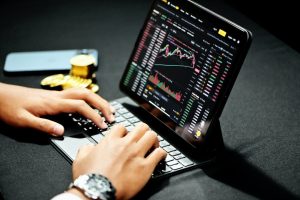Forex Costs for Beginners: How to Start Trading without Breaking the Bank
The forex market is the largest and most liquid financial market in the world. It offers countless opportunities for individuals to profit from currency fluctuations. However, many beginners are often deterred by the perceived high costs associated with forex trading. In this article, we will discuss the various costs involved in forex trading and provide tips on how beginners can start trading without breaking the bank.
1. Spread Costs:
One of the primary costs in forex trading is the spread, which is the difference between the buying and selling price of a currency pair. This cost is typically measured in pips and is determined by the broker. The wider the spread, the more it will cost you to enter and exit trades. To minimize spread costs, beginners should consider choosing a broker that offers competitive spreads. Additionally, trading during periods of high liquidity, such as during major economic announcements, can help reduce spreads.
2. Commission Fees:
Some brokers charge commission fees on each trade executed. This fee is usually a fixed amount per lot traded or a percentage of the trade’s value. Beginners should carefully consider the commission structure of different brokers and choose one that aligns with their trading style and budget. It’s important to note that brokers with lower spreads may have higher commission fees, and vice versa. Therefore, it is crucial to find a balance that suits your trading strategy and financial capabilities.
3. Swap Rates:
Forex trading involves the simultaneous buying and selling of different currencies. As a result, traders are subject to swap rates, also known as rollover fees, if they hold positions overnight. Swap rates are the interest rate differentials between the two currencies in a currency pair. These rates can be positive or negative, depending on the interest rate differentials set by central banks. To avoid excessive swap costs, beginners should consider closing their positions before the end of the trading day or choosing swap-free accounts offered by certain brokers.
4. Trading Tools and Education:
While not directly related to trading costs, investing in trading tools and education can significantly impact a beginner’s trading journey. Forex trading involves complex analysis and decision-making, and having access to reliable trading platforms, charting software, and educational resources can help improve trading performance. However, beginners should be mindful of the costs associated with these tools and choose wisely based on their specific needs and budget.
5. Capital Requirements:
In addition to transaction costs, beginners need to consider their capital requirements. Forex trading is highly leveraged, meaning traders can control large positions with relatively small amounts of capital. While leverage can amplify profits, it can also magnify losses. Therefore, beginners should carefully assess their risk tolerance and ensure they have sufficient capital to withstand potential losses. It’s advisable to start with a small trading account and gradually increase capital as trading skills improve.
6. Risk Management:
Effective risk management is crucial for forex traders, especially beginners. Implementing risk management strategies, such as setting stop-loss orders and adhering to proper position sizing, can help minimize potential losses. By limiting the amount of capital at risk per trade, beginners can protect their trading capital and avoid disastrous financial consequences.
In conclusion, forex trading does involve costs, but with careful planning and consideration, beginners can start trading without breaking the bank. By selecting a broker with competitive spreads and commission fees, being mindful of swap rates, investing in necessary tools and education, and implementing effective risk management strategies, beginners can navigate the forex market while keeping costs under control. It’s essential to remember that trading is a skill that requires practice and discipline, so beginners should start with a modest capital and gradually build their trading account as they gain experience and confidence.





